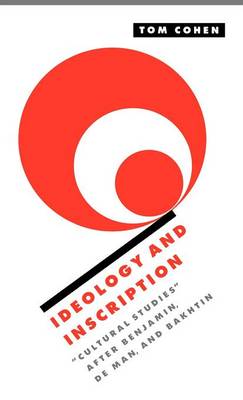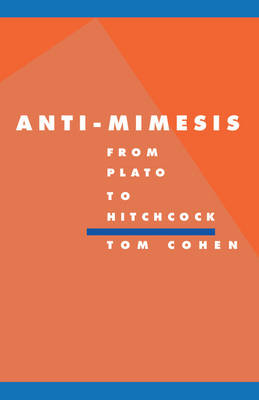Literature, Culture, Theory
2 total works
In Ideology and Inscription Tom Cohen questions the way history, ideology and politics are invoked in contemporary cultural studies. Enlisting the work of three seminal figures in literary theory - Walter Benjamin, Paul de Man, and M. Bakhtin - Cohen argues for a new politics of memory that moves beyond what he sees as our current paralysing preoccupation with the present, and also for a new approach to the reading and analysis of cultural texts that breaks with the mimetic premises of traditional criticism. The book challenges many of the prevailing methodologies and assumptions of the contemporary critical scene and, through analyses of such topics as the rhetoric of science, ecological criticism, and the films of Hitchcock, demonstrates the subtlety and critical power of a more genuinely 'materialist' approach to a wide range of cultural texts.
The material elements of writing have long been undervalued, and have been dismissed by recent historicising trends of criticism; but analysis of these elements - sound, signature, letters - can transform our understanding of literary texts. In this 1994 book Tom Cohen shows how, in an era of representational criticism and cultural studies, the role of close reading has been overlooked. Arguing that much recent criticism has been caught in potentially regressive models of representation, Professor Cohen undertakes to counter this by rethinking the 'materiality' of the text itself. Through a series of revealing new readings of the work of writers including Plato, Bakhtin, Poe, Whitman and Conrad, Professor Cohen exposes the limitations of new historicism and neo-pragmatism, and demonstrates how 'the materiality of language' operates to undo the representational models of meaning imposed by the literary canon.

